Recovery Reporter Summer 2021

- Welcome to Summer - With RI practice there's always HOPE
- News from Headquarters - Honoring traditions and bringing in the new
- Power Your Mind - featured in youth mental health rallies
- Stories of Hope from around the Globe - from California to India
- Stories of Hope Videos - Dickson from Uganda finds RI online and gets relief from PANICS
- Wisdom of Dr. Low - Self-leadership
- Recovery Examples - Great improvement over former days; Courage to make a mistake; Blast from the past
- Roaming the Globe - Featuring India and Uganda
- Members Corner - Setbacks I Have Known, by Treasure Rice
- Dr. Low's archives now available
Welcome to 2021 SUMMER
.jpg)
SUMMER is here, and hopefully there's going to be plenty to write home about!
Summer 2021 is in high gear and most of us are planning things that were on hold during the summer of 2020. It's a favorite season for many and for most of us it means more time outside enjoying summer meals with friends and family. Wisely, we are taking things in stride according to the most recent safety protocols. Being the patient patient isn’t new to us, but following such an unusual year as 2020 we’ve had lots of practice! The process from going from leadership to self-leadership consists of adapting the values of Recovery as your own and doing so in an environment of continuous practice in meetings.
Dr. Low said that it takes time to replace our system of values with the values of Recovery, and that requires the guidance of a leader. When we give an example and follow the four steps and practice applying the recovery tools, we are training ourselves to think Recovery. When we lead an example, we are training our leadership skills. The goal we aim for is self-leadership outside of the meetings. That is when we are able to remember and apply the principles we have practiced in meetings in our daily lives.
We've all worked hard over the past year, so endorse! What we know for certain is that there is always hope for our mental health regardless of circumstances.
— Wishing you a happy, healthy SUMMER Season —
Your editors, Helen and Dave

Mark your calendars for this Fall's BOOK STUDY!!
OCTOBER 2021
We are continuing our series on HABITS. The Book Study will be on Sunday October 10, 2021, at 2pm Pacific and Arizona, 3pm Mountain, 4pm Central, and 5pm Eastern. If you received an email for the previous book study, you are on the list. Otherwise, please click this link davesdecafe@gmail.com to be added to the list. You will receive more details (in September) for the Zoom meeting call number, access code, and a reminder the week before.
News from Headquarters

2021 Summer Update
As I am writing this, some RI Leaders are still determining whether they will re-open for in-person meetings post-pandemic. Some are choosing to continue meetings by phone or online. Some leaders are retiring. Recovery International will be a very changed organization! We must redouble efforts to train new leaders, to offer a wide variety of meeting options, and to reach out to people who need help.
People have many options to choose from in managing their mental health, and while we may not be the right solution for everyone, we are a good, solid option for nearly anyone. Anyone who is willing to take the time to learn our basic concepts of temper, environment, spotting and endorsement. Anyone who is willing to practice the 4-Step Method to identify and manage symptoms. Anyone who is interested in reading and learning the background and context of the spots we learn by heart in order to apply them in our daily lives.
We also must move forward to embrace new technology and new ways to communicate our materials and method to others. Ironically, we have made leaps and bounds in this area during the past year as so many of our members switched from in-person to remote meetings. We are less intimidated by using a phone or computer to attend and participate.
Whichever way works best for you—welcome! And help spread the word about RI and how beneficial it can be. Welcome and mentor others, too. Together, we can make a difference in eliminating the stigma by supporting each other and living more peaceful and productive lives.
With best wishes,
Sandra K. Wilcoxon, CEO
.jpg)
Power Your Mind featured in The Shift youth mental health rallies
Power Your Mind and RI were featured in a virtual wellness rally held in Chicago on May 15 sponsored by The Shift, a non-profit organization with the goal to “empower every voice, enable access to mental well-being, and stop the stigma around mental health so we can live our best lives.” Angela Sullivan showcased Power Your Mind, and Cory B., "a proud, new member of Recovery International," spoke about how the Recovery tools help him deal with symptoms, temper and anxiety. He told how it helps him deal with stressors in day to day activities, like losing his car keys, being late with a homework assignment, or studying for midterms.
You can click here to watch Angela and Cory or type https://bit.ly/2U3ZgzC into your browser.
Stories of Hope
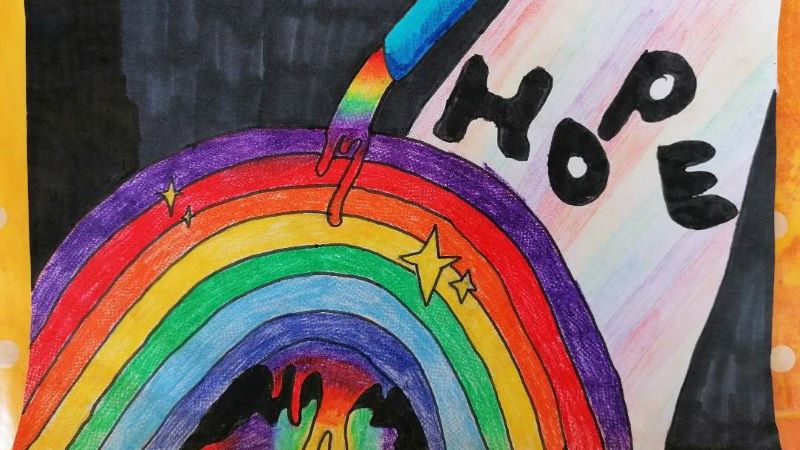
Averageness versus perfection - Don't let the things that you can't do stop you from doing things that you can do
I have had therapists and other methods for my mental health symptoms, but I think that RI is a far better fit for me. With therapists, they tell you to talk about your issues but they don’t give you any tools to deal with them.
I have intrusive thoughts. With the Recovery method, I get the tools to combat the thoughts that I have in the brain. When my symptoms come up I give them a name now. It’s not all cluttered up in my head, with me trying to figure it out. It’s easier for me to release things now.
When I used to get upset I would stay at home. Once I didn’t go anywhere or do anything for a year. I don’t do that now. Today, I felt depressed and I didn’t feel good. I was having all these negative thoughts, but then I thought to myself, “I’m not going to do that today. I’m going to take a shower, put on my clothes, comb my hair and then put on a little makeup so that people can see me on Zoom.” I knew that if I hadn’t done that I would feel even worse about not being consistent with the things that I know that I need to do to help myself.
The one tool that saved me a lot was that "I can be average and not perfect." I used to say, “Don’t let the things that you can’t do stop you from doing things that you can do.” But for some reason all those sayings would go away. When I found out that I could be average and not perfect, it took a lot of the tension away from me having to do things a certain way all the time.
I used to comb my hair for an hour trying to get it a certain way. But then I told myself, “You don’t have to be perfect,” so I stopped it and walked out the door. I think about that a lot now. Just be average about things.
The other tool I use is: “Things might be disturbing, but they’re not dangerous.” I always assigned danger to any and everything that used to happen to me. One time I went to open the patio door and I couldn’t open it. I got really scared. Then I asked myself, “Why are you getting scared about that?” When I saw that I didn’t have to assign danger to everything, it took a lot of that fear away.
Lastly, there is the tool about expectations leading to frustrations. I have all these expectations about every little thing. That’s not reality either. That’s what I’m working on now.
I need to keep working on memorizing these tools and coming to meetings to the point where I get this all down and I can rattle it off like other members do. I want them in my head all the time, so when something hits me I can bring up a tool.

Elaine A., Livermore, CA
Spreading the word
I have been attending the Recovery meetings in Pune, India.
I am currently working at our farm, as well as preparing for my diploma course in Cyber Law. This photo is from last year's rice paddy. Now we are thinking of growing vegetables without pesticides and some flowers.
I have shared our Recovery tools with my new neighbor. She needs it. I am happy to see that she smiles. She was feeling relaxed while reading the tools.
Regards,
Padma G., Pune, India
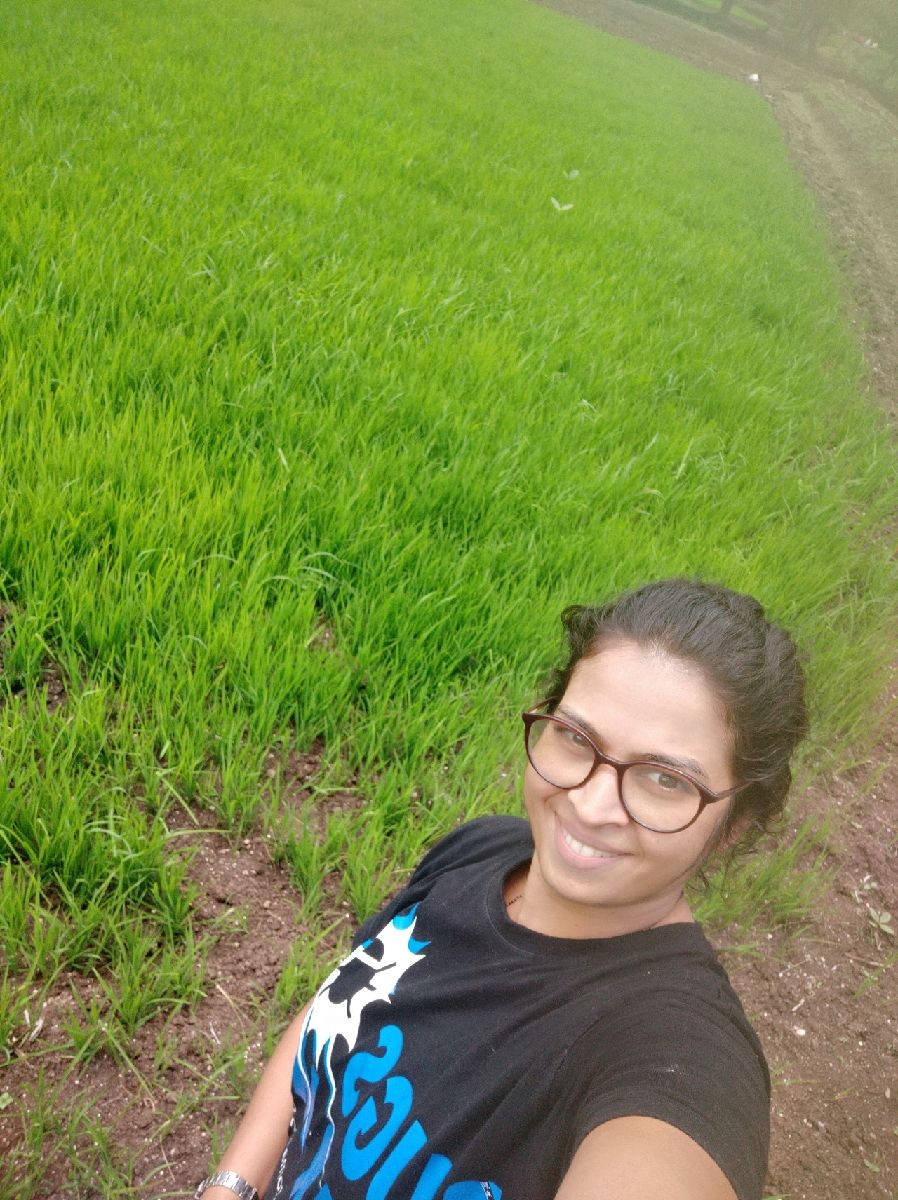
Stories of Hope Video series

Conquering panics and insomnia using the RI tools
CLICK HERE or enter https://bit.ly/3y0ysyQ into your browser to watch Dickson, from Uganda, share on YouTube how he used the RI tools to conquer PANICS and get relief from insomnia. Now he wants to share the tools with the people in his country who suffer from nervous symptoms and lack support. (More on his story below.)
Wisdom of Dr. Low
Self-leadership
The group sets down rules, and we call them standards, standards of behavior. And the standards of behavior that the group sets down are not just in force this afternoon but over long periods of time. And the group tells you, you must always think of your work, not only of comfort. And where work collides with comfort, there you must make your choice in the direction of work. Again, you must make an effort and not look for comfort. But it’s difficult to know what comfort is permissible and what effort is dispensable. And when the patient, for instance, wants some comfort, why shouldn’t he get it? And he should get it if it can be provided. But if it interferes with a duty and obligation, for instance, the duty to get well, then I would advise the patient not to look for comfort and rather to make an effort to reach the goal of health.
And you will realize now that there are many opportunities where you don’t know. Should I go after my comfort or should I go after my effort? Should I go after my obligation or inclination? After what I want or what I need? And in order to decide that, in many instances you must apply to a person who has excellent judgment, fine training, and solid experience. And that’s what we call the leader. And in Recovery this whole choice is made easy for you because we have leadership. And the leader can tell you in what situation you may safely go after your comfort, and in what other situation you have to do, not what you want, but what you need, not to look for comfort, but to apply effort. And in order to be advised by the leader, you must have leaders, of course. And in Recovery we have to supply leadership, this means many leaders that will advise you. And that requires training.
And if the leader has to advise the patient that is in his group, then he must train the patient, for instance, how to understand what the leader tells him, how to use our language, the Recovery language, and all of this requires time. It requires time to train the leaders, and it requires time for the leaders to train the people in their group. And in order to take one’s time, you must wait, and waiting is an effort. It is against comfort, and we come back to the whole, well, circle of the terms that I explained.
And the only thing that I can tell you, and you have heard me tell you repeatedly, if you want to get well, you must be prepared to wait. There is no task that can be performed on the spot if the task is significant. And where is there a task that is more significant than to restore your health? And then finally to effect a cure and to give you final comfort, not transient comfort. And that requires time, I must add again. And it must require particularly much time because we don’t want you always to depend on leadership, but finally you must learn to establish self-leadership. And that’s what we call self-help.
From Manage Your Fears, Manage Your Anger, page 274
Recovery Examples
Great improvement over former days
I had to call support to get help reinstalling an app on my iPhone and reconnecting the app to my credit card. I was angry that I had to go through this situation and had fear of having to experience emotional distress. I had air hunger and body tension. I had fearful temper at my lack of technological knowledge and angry temper at modern technology and its demands for increasing know-how and skill.
The recovery tools I used were:
- Nervous symptoms and sensations are distressing but not dangerous.
- Comfort is a want, not a need.
- Do the things you fear and hate to do.
- Any decision will steady you.
- Anticipation is often worse than realization.
- Bear the discomfort in order to gain comfort.
I endorse for writing out this example and sharing it with my group.
Before I had my Recovery training, I would not have had a means of gaining objectivity about my situation.
Phil R., grateful RI member!
Courage to make a mistake
I was trying to set up a shared Google calendar with my wife. No matter what I did, it wasn't working.
I had angry thoughts about Google and fearful thoughts that despite all the time I was spending, it might end up in failure. I had tension and lowered feelings. I engaged in the complaining hobby.
My fearful temper was self-blame for my inability to figure out simple technology that I thought everyone else could do. My angry temper was that Google was bad for making things so difficult. I spotted that I needed to have patience, that temper blocks insight, and that I had the courage to make a mistake. I endorsed for moving my muscles in spite of my discomfort.
Before my RI training, I would have feared the possibility of getting into symptoms and avoided trying it altogether. As it was I discovered the key and now we are sharing a calendar that makes planning our activities a lot easier.
David W.
Click on the icons below for more examples and stories from RI members.
 |
 |
 |
||
| Chat room | YouTube | Meetings | SoundCloud |
If you have questions, email info@recoveryinternational.org
Roaming the Globe
![]()
ANYONE, ANYWHERE, ANYTIME - FROM INDIA TO UGANDA


My name is Deepak. I live in Pune, India. I’ve had depression for seven years. I used to have panic attacks. Now, all of these things are very much in control. I’ve been attending Recovery International meetings for two years. These meetings are sponsored by the Schizophrenia Awareness Association. It’s a diverse group, not only limited to people with schizophrenia.
We used to have face-to-face meetings but recently we are meeting on Google Meet. When we start the meeting we divide up a list of tools that have been translated into the local language, Marathi. Someone in the group asks the four questions in the example format, and a person answers, telling the tools that he used. Then the other members tell him the tools that he used that he hadn’t mentioned.
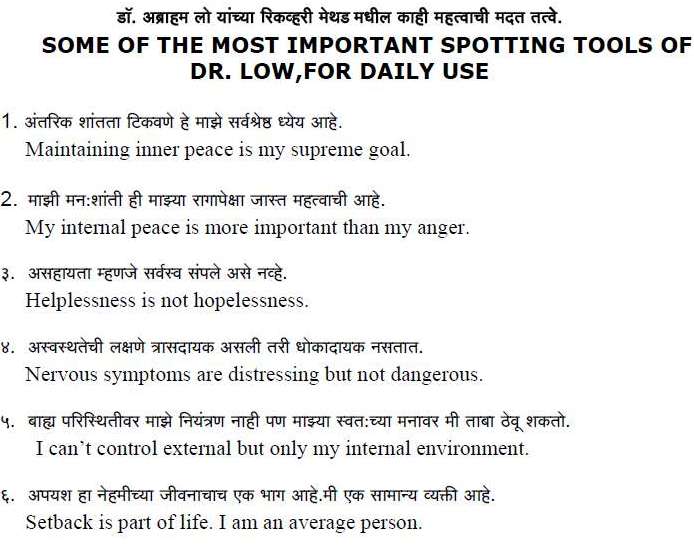
Recently, Dickson from Uganda came to our meeting. We were very excited to have somebody from Africa.
.jpg)
Deepak D., Pune, India

I'm Dickson from Uganda. I came to Recovery because I was going through depression and having panic attacks. I was not sleeping well. I was so stressed.
The first meeting I attended was a Zoom meeting in the United States. Because of the different time zones I started going to meetings in India with Deepak.
In that program I met so many good people. They are family to me. We shared a lot of stuff between us which is really helping me so much, because these guys are really caring. They comforted me. They told me, ”What you are going through, you aren't alone.” It made me feel like I am at home because, at first, I thought I was the only one who is going through this.
So it is really so nice for me and I am really improving. But ever since I came to Recovery International my life has changed. I now think positively. I know that one day I'll be fine.
I look at attending more meetings so that I meet more people so that I can also lead people - lead a one meeting one day.
So I thank Recovery International for really helping me change my attitude towards my thinking of life, the way I think of myself and the way I think of the past.
CLICK HERE or enter https://bit.ly/3y0ysyQ into your browser to watch Dickson share his story on YouTube.
.jpg) Area 25
Area 25
A “Double Feature” for Mental Health Awareness Month
The Recovery International Annual Meeting on May 22 took a starring role in a “double feature” for San Diego Area 25 Members. First, we enjoyed viewing the virtual Annual Meeting at the San Diego RI office. Three of the group were introduced to viewers:: Board Member/Program Committee Chair, Judi Bakke, Program Manager, Lisa Garcia; and Administrative Assistant, Debbie Newell.
Then San Diego Members participated in the annual NAMI San Diego Walk. As with last year's walk, it was an abbreviated version as we marched around the RI office building, in keeping with current health guidelines. San Diego RI has organized a team for the NAMI Walk for over a decade now, along with other mental health organizations.
The new 2021 RI NAMI Walk T-shirt is powder blue with “Better Mental Health” on the front and “Plan, Decide & Act” on the back. A limited supply of the new T-shirts is available for a donation covering the postage. If interested, contact Debbie at the San Diego office - Debbie@recoveryinternational.org
Kimberley M., San Diego Area 25
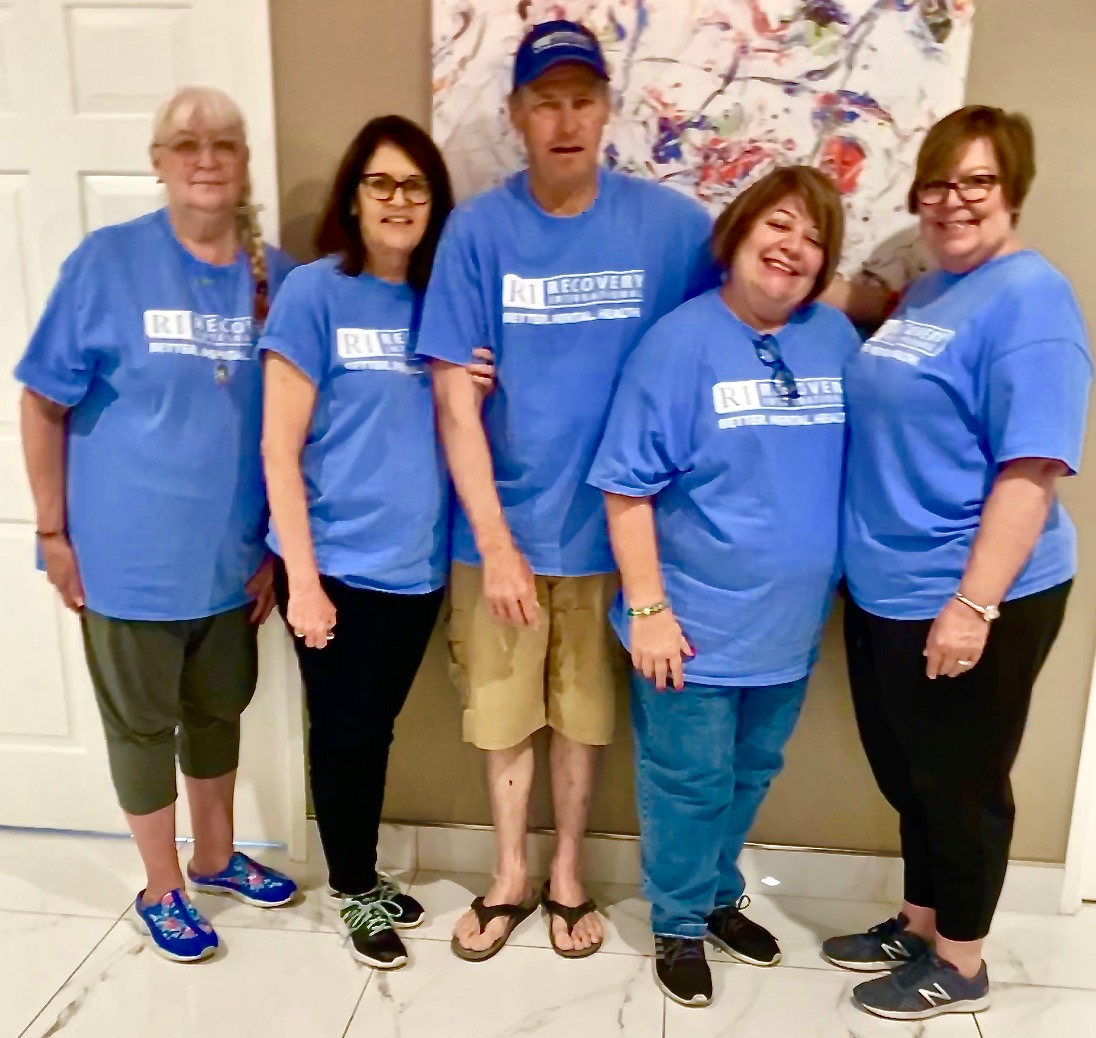
From L to R: Kimberley M, Judi B., Jeff B., Lisa G., Debbie N.
 South Central Ohio and Kentucky Area 141
South Central Ohio and Kentucky Area 141
RI Veterans Program Presents at the VA San Diego 2021 Core Graduation Ceremony
Recovery International Program Director, Lisa Garcia; Special Projects Director, Angela Sullivan; and Veterans Program Committee member, Scott Bushbaum, gave a presentation to the San Diego VA Medical Center CORE staff, family, attendees and graduates on May 7, 2021.
CORE is the Psychosocial Rehabilitation and Recovery Center of the San Diego VA Center located in San Diego CA. Their work with US military veterans is to provide rehab and recovery resources to those persons who do not finish basic training. Their work also gives help to military persons who are found to have disabilities after beginning a military career and for whatever reason cannot fulfill their service to the military. (The link to their home web page is located at https://www.sandiego.va.gov/.)
The three RI presenters gave information about Recovery International’s Veterans Program and the new teen/young adult program called Power Your Mind. The presentation was a collaborative effort to inform and educate the CORE Graduation attendees about the benefits of Dr. Low's four step format and how RI offers tools to help with PTSD, depression and the simple trivialities of daily life.
Power Your Mind is an introduction to the RI concepts and method using graphic novel storytelling about real life situations. The Power Your Mind book is available at the Recovery International store or at the Power Your Mind website and offers life skills to cope with temper, anxiety and everyday trivial situations. Power Your Mind works to establish realistic expectations and beliefs.
Lisa Garcia was contacted by VA San Diego staff shortly thereafter with a thank-you note and an invitation to participate in more outreach opportunities from the VA San Diego Medical Center in the coming weeks.
Scott B., RI Area 141 - Assistant Area Leader / Veterans Program Committee
- - - - - - - - -
In May, I decided to take a road trip from my home in south of Dayton, OH, to visit friends and relatives on the east coast.
While in NYC for a couple days, I had the pleasure of meeting up with several RI members. Even though I had only met these folks in person one other time, I felt comfortable reaching out to make plans to get together due to getting to know each other on RI Zoom and phone meetings and with travel and dining restrictions easing.
My first stop was meeting area 130 NYC team members, Tony F., and Holly W., at Cross Bay Diner in Howard Beach, Queens. We had a lovely lunch overlooking Jamaica Bay, followed by a lively game of scrabble. The next day, I met up with area 133 (north of NYC) team members, Beth F., and Eva S. We dined on authentic Italian cuisine in Little Italy in the Bronx, followed by exploring the beautiful New York Botanical Gardens. I appreciated the warm hospitality extended to me by my NY RI friends!
I look forward to more opportunities to gather in-person with like-minded people in RI!
Kelly O., area leader and group leader, Area 141 (South Central Ohio and Kentucky)

On June 19 and July 5, members of the Friday, 10AM Deptford Library, New Jersey Zoom meeting got together face-to-face for a time of mutual understanding. “I insist that my patients associate with fellow-sufferers in Recovery.” (MHTWT p. 382). Following Dr. Low’s example, Ann S. and Pat M. invited us to their respective homes. The fellowship of the Deptford meeting is essential to the recovery of its members.
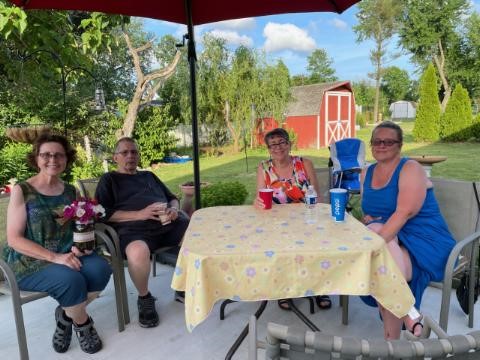
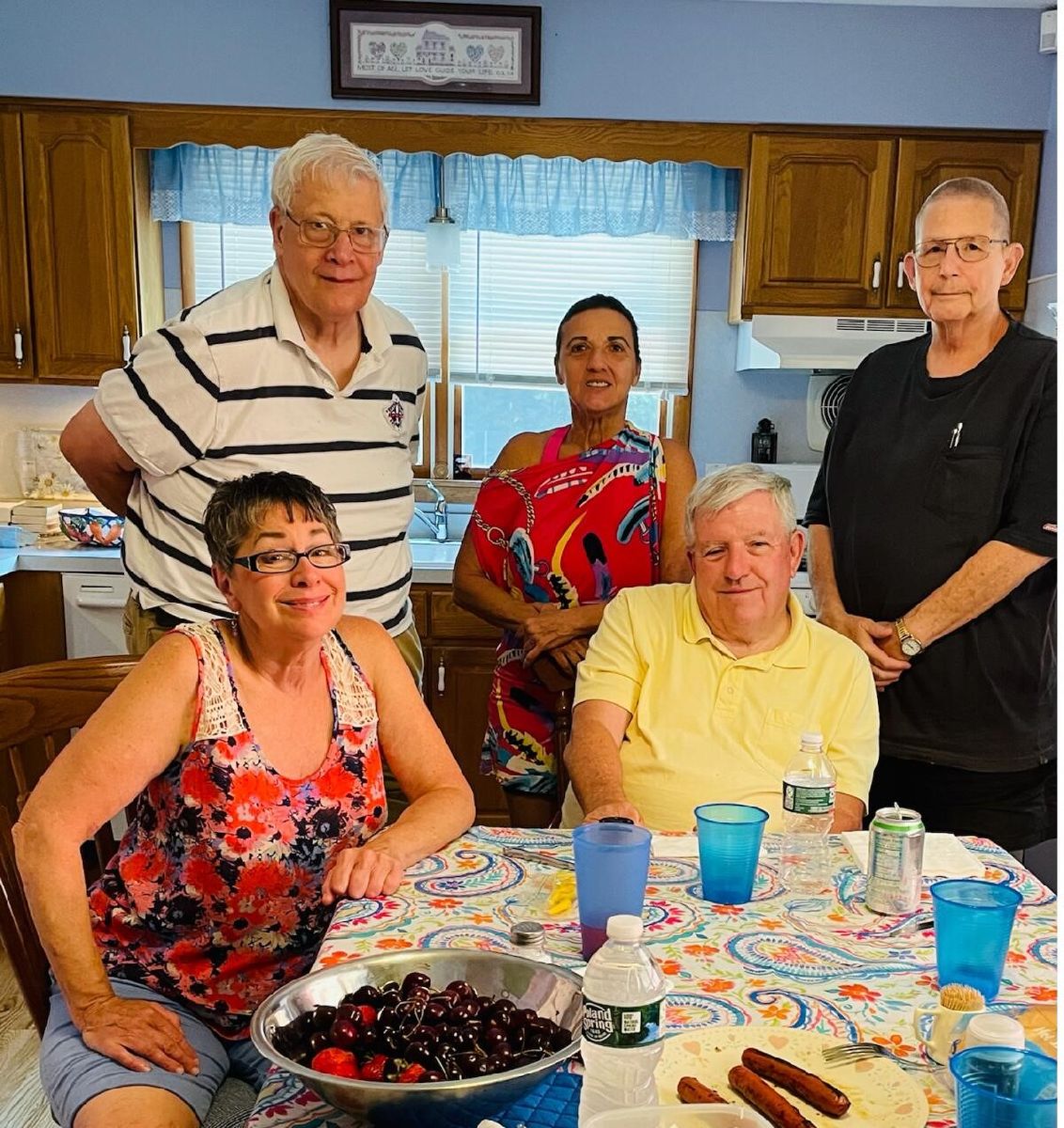
June 7: Left to Right Ann, Barry, Pat, Ann Marie
July 5: Seated Pat, Jim. Standing left to right Joe, Tiziana, Barry

![]() Area 20
Area 20
This past spring, Tom and Kathy B., reopened the Oakland Monday 12:30 meeting in the basement of the Resurrection Lutheran Church on 397 Euclid Avenue.
They said that they were surprised at the startle they experienced returning to the physical meeting place. They didn’t think that they would be startled to be getting the tables and chairs ready and putting the books out, but they welcomed people and did an average job.
Many people came to the first meeting because they wanted to celebrate the reopening. One special guest was Dave B., the former area 20 leader and current Modesto, California meeting leader.
People are continuing to show up. They are finding the in-person meetings helpful for their mental health.
Endorse, Tom and Kathy!
For more information, call (510) 383-6198.
North and Central Florida - Area 35
The Area 35 Palm Harbor meeting got together recently for lunch at Rusty Bellies Waterfront Grille located in the historic Sponge Docks of Tarpon Springs, FL. Great Recovery fellowship and great food was enjoyed by all!
Lynette B., Group Leader

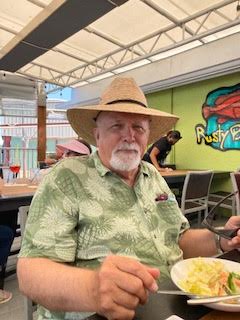
![]()
Members Corner
Setbacks I've Known, by Treasure Rice
Dr. Low said setbacks are inevitable. So when Recovery members tell me they are in a setback, I think, “well, that’s average — no danger.” But when I have one, the picture changes. I feel wrong for getting into the setback and don’t think it’s average at all. Mine are divided into two kinds. The first kind is a pesky reminder that I must be sabotaging. I stop and spot it, and the setback leaves quickly. The second kind I call SETBACK (big capital letters). A lot of my old symptoms return for some unknown reason. Instead of accepting them calmly, I get scared and the vicious cycle gets going. I’ve had dozens of the first category during my years of Recovery training, but just a few from the second category, with years of good mental health in between.
In every one of my SETBACKS I knew that this time Recovery wouldn’t work for me. I felt helpless and thought that I really had a permanent handicap. Days, weeks, and sometimes months went by with little or no relief. But I craved relief.. .NOW! What had happened to my Recovery insight? Surely others didn’t become this helpless again! The symptoms I had were: tremors, disturbed sleep, loss of appetite, not interest in anything, fatigue, feelings of unreality, restlessness, and FEAR. I felt ashamed, too, and of course, that was the STIGMA!
I believed that my nervous illness was a disgrace. One of the Recovery techniques I did remember to use was to keep moving my muscles. I knew I could eat, that I did get rest if I stayed in bed at night. But I couldn’t get away from my suffering. I was under the tyranny of my symptoms. My doctor told me to keep on with my Recovery training.
I know now that these SETBACKS served a purpose. I had to scramble for answers. I studied the Recovery literature, attended more meetings (when I could), I lowered my standards for myself, and I learned how to WAIT the Recovery way...with hope and lots of will to bear discomfort. This strengthened my nervous constitution. I sought out mutual aid with Recovery members and acquired insight into my self- diagnosing, and also how much unspotted angry and fearful temper I still had. Once again, I regained respect for my emotional health. It has come first because everything else depends on it.
So, I am grateful for those SETBACKS. The mental health I enjoy now I’ve had for many years. It didn’t just happen. I had to learn the hard way by applying the Recovery Method, motivated by my suffering. I no longer consider my nervous illness a disgrace. I am grateful to Recovery, Inc. for the knowledge that if I do get into another SETBACK I am equipped with training that will see me through it.
Treasure Rice (a patient of Dr. Low and a pioneer in the Recovery organization)

Throwing it Back! Good times at the May 1977 Annual Meeting
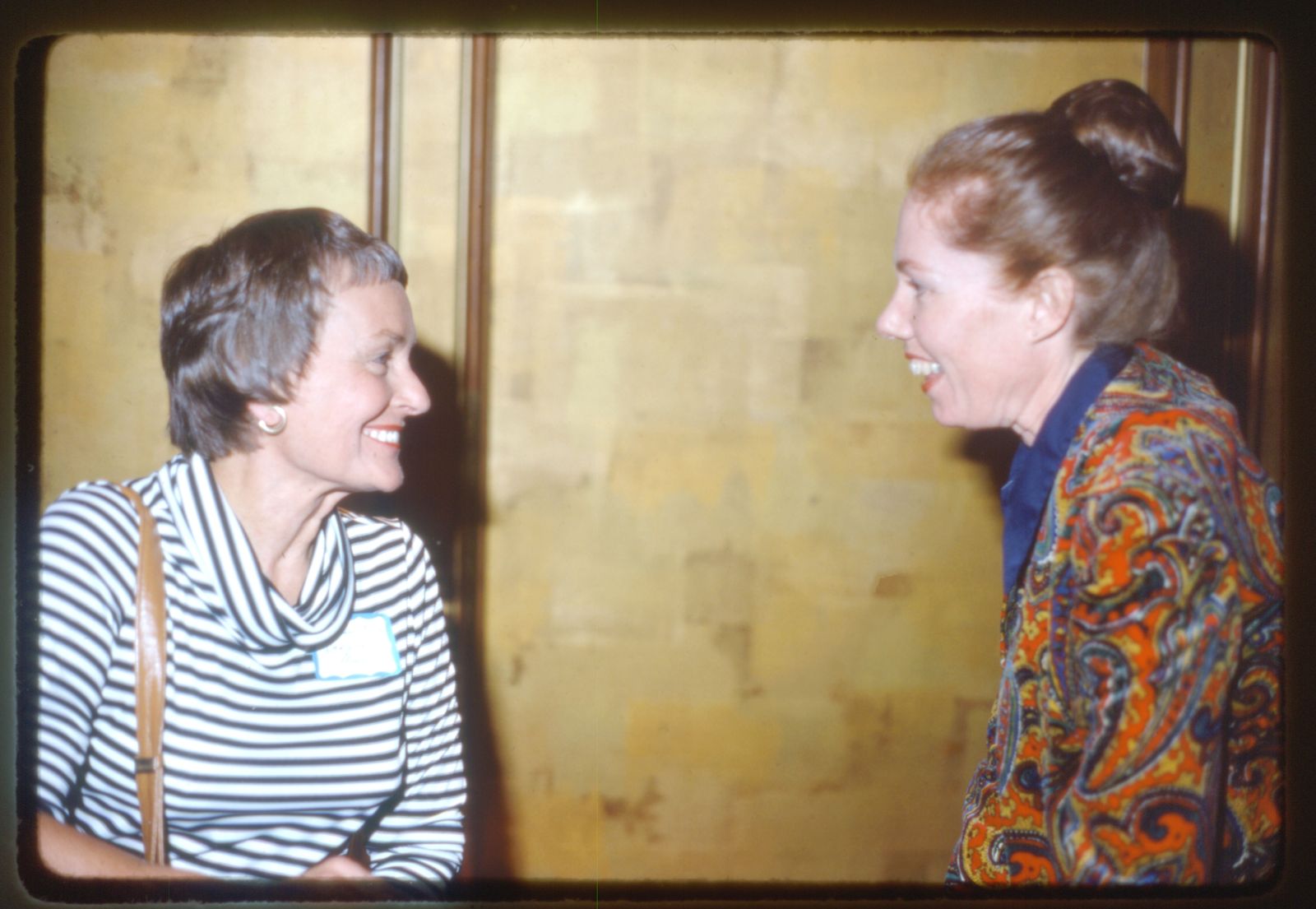
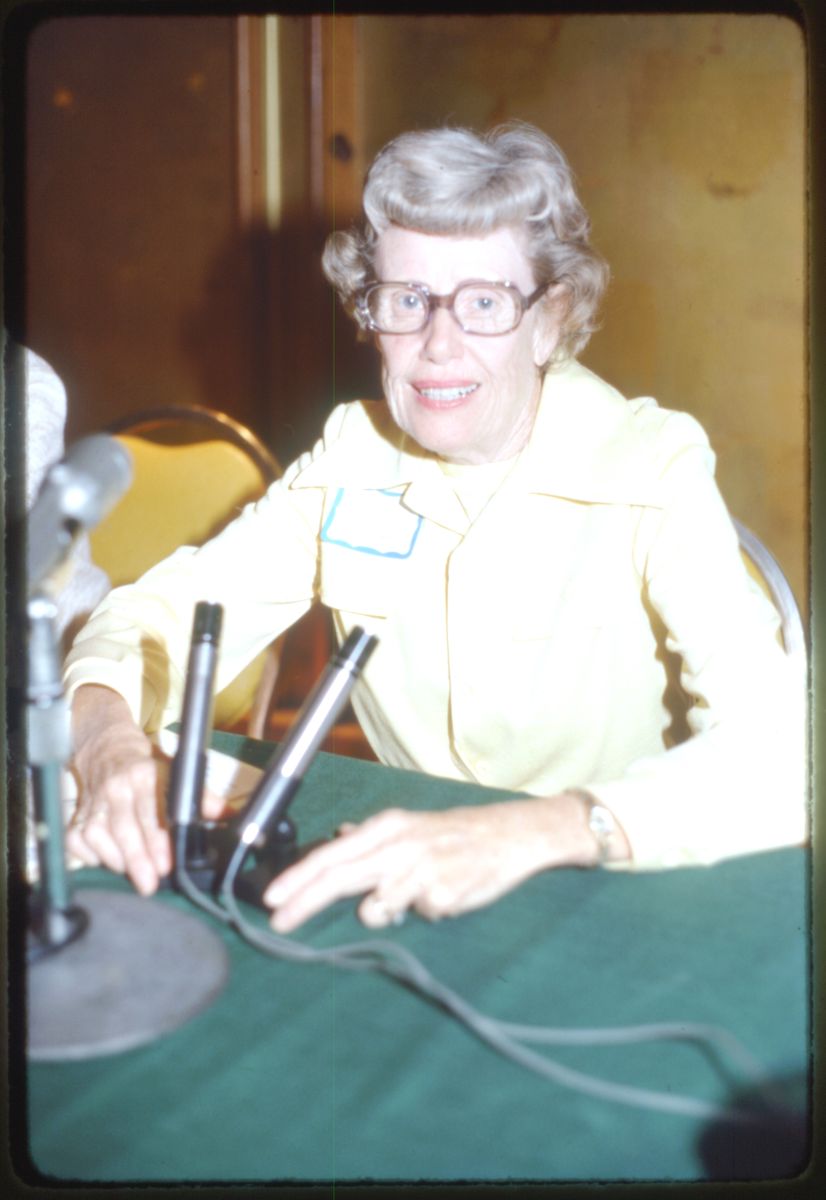
.jpg)
Photos by Ralph Jungheim
Photos from L to R
- Treasure Rice and Celinda Jungheim, Los Angeles Area Leader
- Betty Keniston, RI Board President
- Phil and Maxine Crane
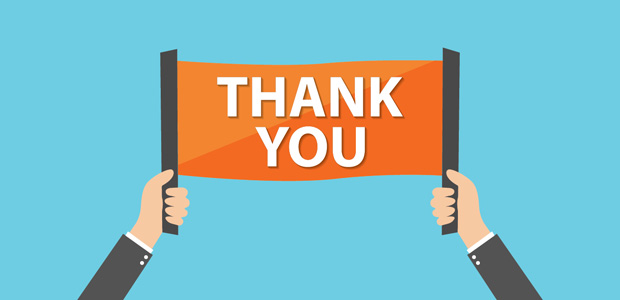 Thank you for your service!
Thank you for your service!
Archives of Pioneering Neuropsychiatrist Now Available
By Carlos Sadovi, UIC
In 2019, Recovery International donated early organizational records and the personal papers of its founder, Dr. Abraham Low, to the University of Illinois Chicago’s Special Collections and University Archives at the Library of the Health Sciences-Chicago.
The material was split into two archival collections: the Abraham Low papers and the Recovery International records. Processing is complete and both collections are now available to the public.
The Abraham Low papers focus on the life of Dr. Low, from his experience being a soldier in World War I to a professor at the University of Illinois Chicago (UIC), and the creation and expansion of Recovery International. The collection materials, including his personal diary, provide a deep look into Dr. Low’s life, priorities and his motivation behind creating Recovery International. He had appointments at the University of Illinois Chicago campus between 1927 and 1954.
The Recovery International records are about the creation of Recovery International, the different locations in the country where people started small recovery groups that later expanded, and the growing number of members joining the organization. The records also include publications by Abraham Low, information about the organization and correspondence.
Processing was completed by Maria A. Vargas, then a UIUC School of Information Sciences graduate student. “Processing this collection was a unique experience for me because it was interesting to read transcripts of the group therapy sessions that Abraham Low conducted. The advice that he would give his patients was attention-grabbing because he would help them process and understand what they were experiencing during past situations and helped them find a healthy outlet,” Vargas said.
Researchers interested in mental health, and especially cognitive behavioral therapy, will find these collections of use. The collections contain correspondence with Dr. Beatrice Wade and Dr. Francis Gerty, both important figures in Chicago and national medical history. The Recovery International records in particular show the Low family’s efforts to preserve Dr. Low’s legacy and continue the organization’s work after his death in 1954.
Both collections can usually be accessed in the Special Collections and University Archives Reading Room at the Library of the Health Sciences–Chicago. However, due to COVID-19, the Special Collections and University Archives Reading Room is currently closed to the public. UIC students, faculty, and staff may make a reservation. Remote reference is available. Please contact lib-spec@uic.libanswers.com or call 312-996-8977.
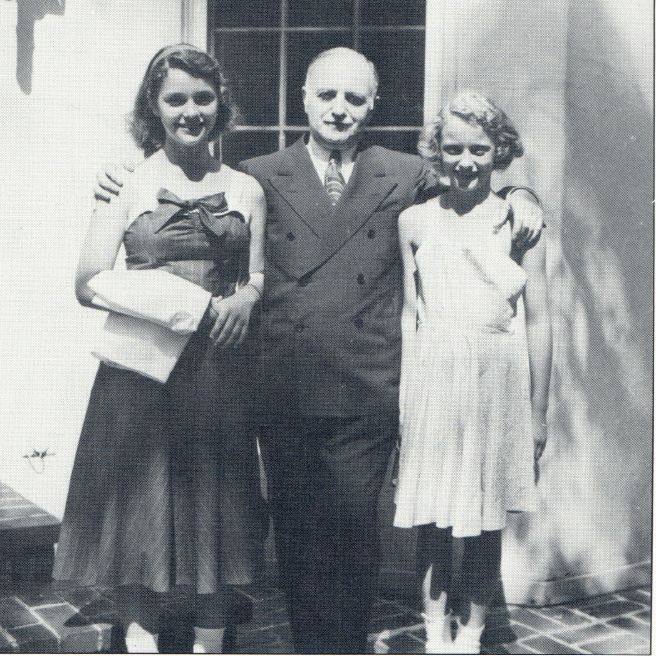
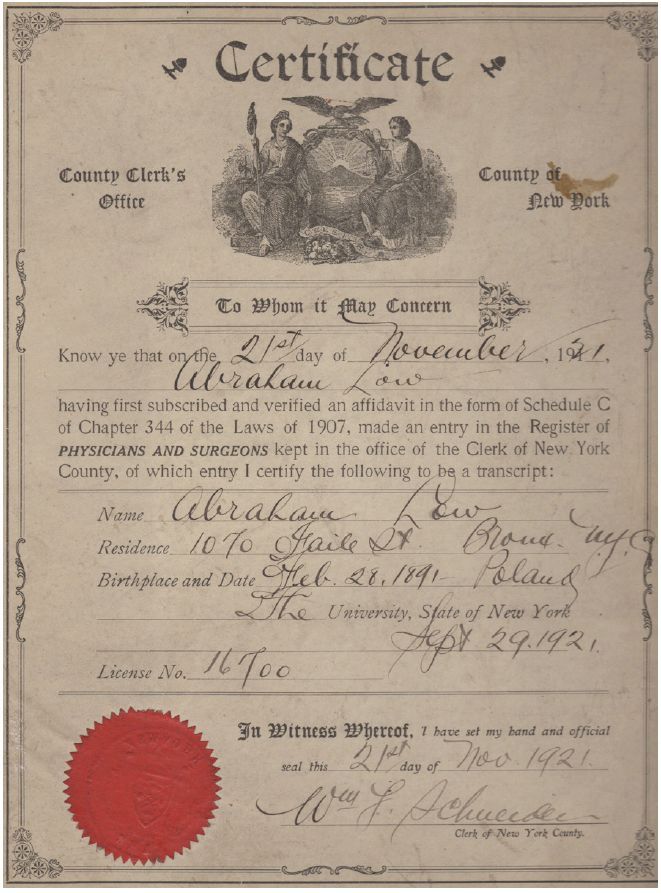
Call for submissions!
Have you or someone you know dedicated 25 or more years to practicing the RI Method?
Help us honor our longtime members here in Members Corner! We are going to feature our long-serving heroes in each issue of the Reporter.
Send us:
- A photo
- A short description
- What challenge/problem did RI solve for you?
- What are your favorite spots?
- Why would you recommend RI?
- Highlight the meeting you attended (City, day, time and any leadership roles taken on)
Please also submit your Stories of Hope, Examples and local news for Roaming the Globe for the next Reporter.
Submission guidelines:
We would like thank all of our contributors, without whom the Recovery Reporter would not be possible. Before sending submissions, please read the following submission guidelines.
- Please keep submissions as short as possible, roughly 3 paragraphs in length, which is approximately 300 words.
- Please identify all submissions with first name and last name initial only, area number (if you know it), town, and state or country.
- Photos: Please if possible submit clear photos whenever possible.
- Please no bold or italics.
- Please adhere to the deadlines for each issue.
- When the volume of submissions exceeds our page limits, it may be unfortunately necessary to exclude some submissions.
- Please send only submissions pertinent to the Recovery Reporter
PRIVACY: To protect the privacy and confidentiality of all members, please use only first name and the initial of the last name of people. Please be aware that the content you submit is NOT private because we cannot control how it is shared and therefore it may be accessible to the public.
The views and opinions expressed by authors of articles appearing in the Reporter are those of the author of those articles and they are not necessarily the views and opinions of Recovery International or anyone affiliated with Recovery International.
Email your submission to editor@recoveryinternational.org.
Mailed items should be sent to Headquarters:
Recovery International
1415 W. 22nd St., Tower Floor
Oak Brook IL 60523
Reminder
If your email or address changes please be sure to notify us. If you are a Canadian member you should also notify Cindy H. at purple74@xplornet.com.
If you, or someone you know, is a paid member and isn’t receiving the Reporter, please let us know at info@recoveryinternational.org

